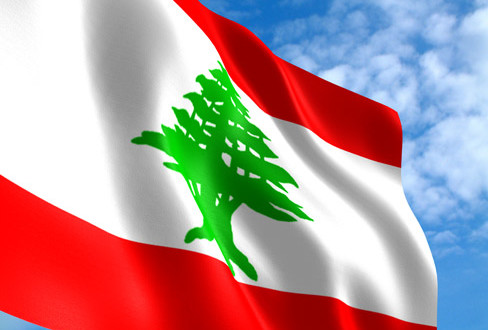Lebanon’s parliament sat Tuesday in a conference hall in Beirut to allow for social distancing between lawmakers amid the coronavirus pandemic, while outside anti-government protesters demonstrated in a car convoy.
As the country struggles with a battered economy, MPs approved a $120 million loan from the World Bank to help fight COVID-19, which has officially infected 677 people and killed 21 nationwide.
Parliament also approved a law for establishing a national commission for combating corruption and another for constructing a tunnel that would link the Bekaa region to the capital Beirut.
Free Patriotic Movement chief MP Jebran Bassil tweeted that the approval of the corruption commission law is a “good but insufficient” step.
“The laws that remain relate to: 1- Lifting bank secrecy, 2- Lifting immunity, 3- Establishing a financial crimes court, 4- Recovering stolen funds and 5- Unveiling bank accounts and properties, which is the quickest and most efficient way,” Bassil said.
Also on the agenda of the three-day session were proposals for a divisive general amnesty, to legalize cannabis for medical use, and to lift immunity for ministers and lawmakers to allow prosecutions over alleged corruption.
Speaking at the session, Speaker Nabih Berri hit back at “those who are accusing parliament of shortcomings and failure to perform its role.”
“Parliament is performing its duties to the fullest. Everyone knows when this session had been scheduled and how it was postponed. Parliament’s bureau put all the draft laws and proposals on its agenda, but unfortunately some colleagues believe what is being said about parliament’s role,” Berri said.
“Parliament is performing its role as to legislation and monitoring no matter what they said or will say,” the Speaker added.
Outside the venue, dozens of protesters drove a noisy convoy of cars covered in slogans, drivers honking their horns and passengers brandishing the national flag and leaning out of the windows in face masks.
They defied a stay-at-home order to protest deteriorating living conditions and maintain pressure on a political elite under fire since mass protests erupted last October.
Lebanon is grappling with its worst economic crisis since the 1975-1990 civil war, compounded by the lockdown, and poverty has risen to 45 percent of the population according to official estimates.
– Discord over amnesty plan –
The lawmakers met in a conference hall at the UNESCO Palace in Beirut, with a capacity of up to 1,000 people, as part of measures to halt the spread of the novel coronavirus.
Among their 66 items to discuss, legalizing growing marijuana for medical purposes was expected to be approved by a majority as it could generate revenue for the indebted state’s coffers.
Lebanon bans growing, selling and consuming cannabis, but its underground production in the country’s east has developed over decades into an illicit multi-million-dollar industry.
No consensus was in sight, however, for a general amnesty to free thousands of detainees and to suspend arrest warrants for thousands more.
Supporters — which include pro-government Hizbullah and AMAL Movement as well as the opposition al-Mustaqbal Movement — say an amnesty could lessen overcrowding in jails housing 9,000 prisoners.
But its detractors, including the president’s Strong Lebanon bloc, allege the bill is merely an attempt to boost popular support.
“From the very first moment we were clear on the need to issue an amnesty law that would exclude all those who have blood on their hands,” al-Mustaqbal leader ex-PM Saad Hariri tweeted.
“Some are standing against it today in a bid to sectarianize the issue or because they think that they would regain popularity that they have lost among their confessional community and other communities,” Hariri said.
“This is an unethical and inhumane stance that will fire back against its advocates,” he added.
The amnesty has long been a demand of the families of some 1,200 so-called “Islamist detainees”, most of whom hail from the Sunni-majority city of Tripoli, where Mustaqbal has clout.
They are accused of carrying out crimes including fighting and assaulting the army, taking part in clashes in the city, and planning explosives attacks.
Families have also clamored for the release of thousands more detainees from the eastern regions of Baalbek and Hermel, where Hizbullah and the parliament speaker’s AMAL are powerful.
Most of these are accused of drug-linked crimes including growing hashish illegally, or other offenses such as stealing cars.
 Lebanese Ministry of Information
Lebanese Ministry of Information



